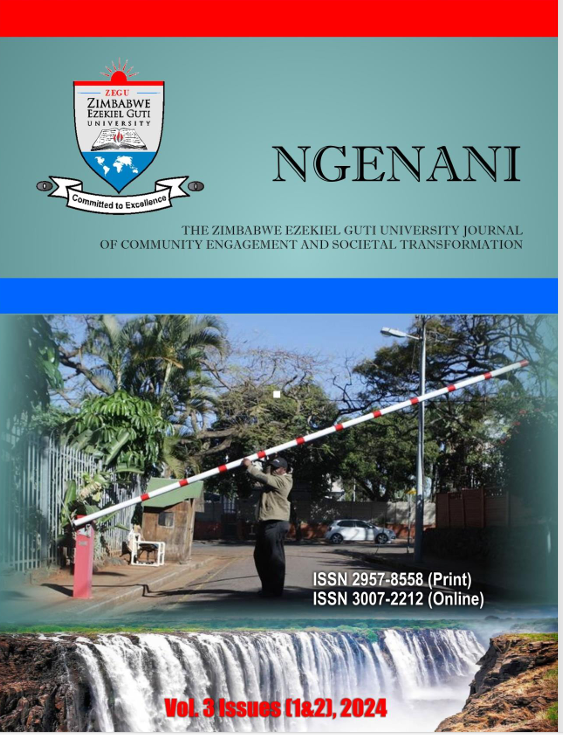Lessons from Cyclone Idai for Effective Disaster Management in Chimanimani, Zimbabwe
DOI:
https://doi.org/10.71458/r4yha016Keywords:
disaster, disaster-response, resilience, early-warnings, cycloneAbstract
This study proffers some practical and research-based recommendations to the identified disaster management bottlenecks and lays out solutions to enhance future community disaster management and resilience strategies. The research followed an exploratory sequential design, targeting various key stakeholders who took part in the Cyclone Idai disaster management. A sample size of 57 respondents was selected using purposive and cluster sampling methods. Data were collected through questionnaires and interviews. Quantitative data were analysed using the StatisticalPackage for Social Sciences (SPSS) version 23.0, whereas qualitative data were analysed using the thematic content analysis. Findings indicated that incompetent governance and administrative systems, lack of coordination and weak enforcement contributed to vulnerability. Furthermore, the study revealed that gender insensitivity marginalised women in decision-making, inadequate training and limited access to early warnings, among others, had all compromised preparedness and disaster management of the Cyclone Idai in Chimanimani District. Therefore, recommendations proffered include: strengthening governance, addressing poverty and inequalities, integrating gendersensitive approaches, enhancing training of community members and local authorities, improving communication and early warning systems and establishing well-equipped safety centres.




